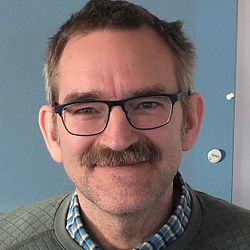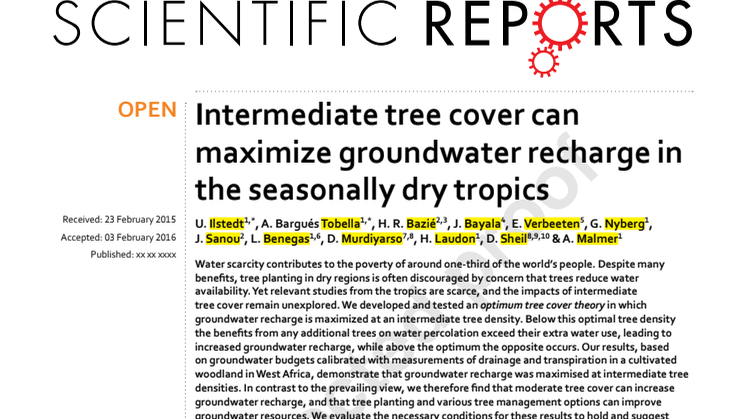Nyhet -
Trees improve groundwater recharge
Trees can improve groundwater recharge in tropical drylands.
This is the result from a recently published study in Nature Publishing Group journal Scientific Reports by a team of researchers from CIFOR, ICRAF, CATIE and INERA, lead by Associate Professor Ulrik Ilstedt of SLU (The Swedish University of Agricultural Sciences).
The project gives new perspectives on a long-standing debate of the impact trees have on groundwater resources. A popular perception is that trees are beneficial to water availability which has motivated tree planting projects across the tropics. But the present scientific paradigm until now has been that trees always consumes more water in transpiration and interception (evaporation on leaf surfaces) than other vegetation which has undermined support for these claims.
The study now published in Scientific Reports shows the truth in both perceptions. Based on field measurements in a cultivated woodland in Burkina Faso the team showed that an intermediate density of trees can maximize groundwater recharge in conditions that are common across much of the seasonally dry tropics. Without the trees these tropical soils lose their larger pores and much of the water is not able to enter deep into the soils. Instead water is lost through overland flow and evaporation on the soil surface. But with too high tree cover the trees use more water than is gained by the improved soil properties.
Research leader Ulrik Ilstedt says: “Earlier studies has been in the more humid tropics or focused on fast growing plantations with exotic species. We hope that our results will stimulate more research in a wider range of systems such as agroforests, selectively harvested and old growth forests, savannah woodlands and pastoral systems. It is exciting that suddenly different tree management options – such as thinning, pruning and species selection – can further improve groundwater recharge. The results offer opportunities for renewed environmental restoration and carbon sequestration in degraded lands at the same time as the livelihood of millions of people in water limited regions is improved. We see substantial opportunities to improve land-use policies, practices and management in many areas across the tropics.”
Scientific Reports magazine:
More information:
Ulrik.Ilstedt@slu.se ph +46-70-151 0075
Anders.Malmer@slu.se ph +46-70-645 9299








